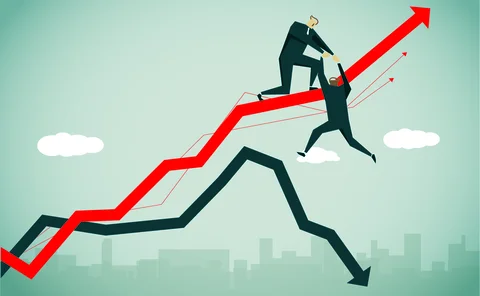Valuation adjustments (XVAs)
WHAT IS THIS? The XVAs are a family of adjustments that can be made to the price of a derivatives trade, reflecting counterparty risk (CVA), own-default risk (DVA), funding (FVA), capital (KVA) and margin (MVA). Their theoretical roots and practical implementation are still debated, but pragmatism also matters: banks that ignore XVAs are at risk of mispricing a trade; banks that include them are at risk of never winning a trade.
FVA – Time to go asymmetric?
Despite being introduced over six years ago, there is still no market consensus on how to calculate funding valuation adjustments. One point of contention is whether to use the same funding curve for borrowing and lending (symmetric funding) or to use…
Best CVA practices in Japan
At a recent roundtable in Tokyo, banks and regulators discussed progress on credit valuation adjustment (CVA). While, in many respects, the work towards implementing best practices in the country is on track, challenges remain in resourcing and…
Podcast: Mats Kjaer on how trades affect the balance sheet
Bloomberg quant has developed a balance-sheet model for XVA pricing
In the balance redux
Mats Kjaer developes a dynamic balance-sheet pricing model for valuation adjustments
Gaming tests, loss provisions and synthetic Libor
The week on Risk.net, September 28–October 4, 2019
Basel III heralds wild CVA capital swings
Minimum required capital for CVA to climb 64% for large banks, but some banks will see falls of up to 67%
European FRTB proposals spark XVA overload fears
Banks warn of overly complex revaluation process and heightened risk of backtest fails
JP Morgan’s CVA charge jumps $249m in Q2
All US G-Sibs post higher CVA capital requirements for the quarter
Top UK banks cut CVA charges by 9% in Q2
Standard Chartered is only outlier among big five to see capital requirement rise
XVA solution of the year: Numerix
Asia Risk Technology Awards 2019
First-half trading revenues at US G-Sibs increase by a third year-on-year
Income from interest rate exposures more than tripled on H1 2018, while equity revenues increased 17%
Podcast: McClelland on why you need a good MVA model
Numerix quant presents a model aimed at showing the total cost of a trade
Singapore banks begin to phase in XVA
DBS, OCBC and UOB start using valuation adjustments, but face hedging hurdles for CVA
CVA, debt raising said to drive SoftBank CDS trading
Volumes rise as tech giant’s debt spree forces banks to hedge their counterparty exposure
Japan’s megabanks begin pricing in CVA
Local firms align with foreign dealers to include counterparty credit risk in corporate swap quotes
StanChart's CVA charge triples year-on-year
Capital requirement hits $112 million at end-March
Sovereign swaps users should learn from Italy’s mistakes
Posting collateral is a cost debt offices must embrace, argues Stefania Perrucci
Central counterparty CVA
Matthias Arnsdorf proposes a method to calculate the counterparty risk related to CCP membership
Wells Fargo takes $112m CVA hit in 2018
Trading revenues decline $54 million overall through derivatives adjustments
Mizuho reveals $270m CVA loss
Further losses may be reported as bank refines its methodology, sources say
Functional programming reaches for stardom in finance
Fans highlight more reliable code, and suitability for complex tasks and distributed ledgers


















